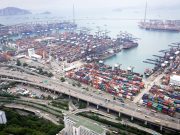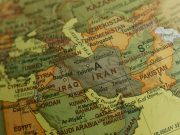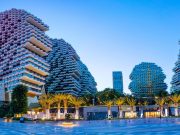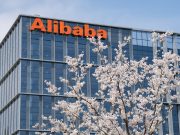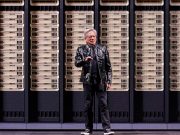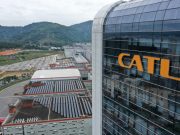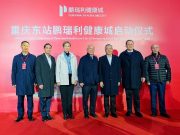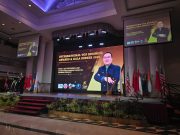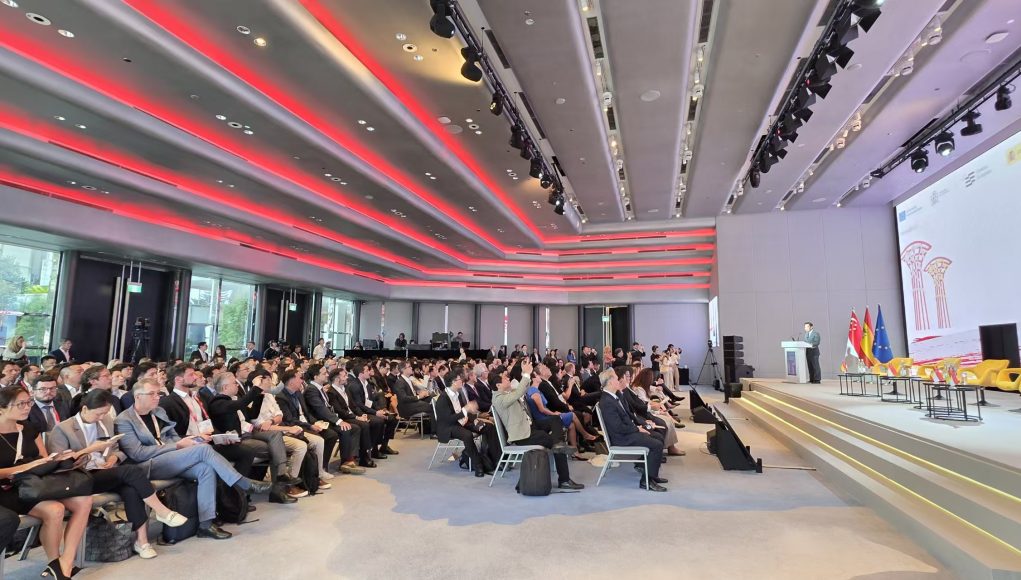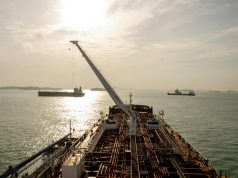Article & Photo by: An Xin/Journalist
(16.07,2025, Singapore) “Renewable energy, healthcare and advanced manufacturing are the three key areas for Singapore-Spain collaboration,” said Mr. Alvin Tan, Minister of State for the Ministry of Trade & Industry and the Ministry of National Development, Singapore, at today’s Singapore–Spain Business Summit. “Spain leads globally in wind, solar, and hydrogen energy, while Singapore welcomes deep collaboration in green energy and AI-powered healthcare.”
Mr Tan highlighted that despite the geographical distance, the two nations share a maritime trading heritage. Spain once pioneered trans-Pacific routes through the Manila–Acapulco Galleon Trade, while Singapore has been a key node of the Maritime Silk Road since its founding in 1819.
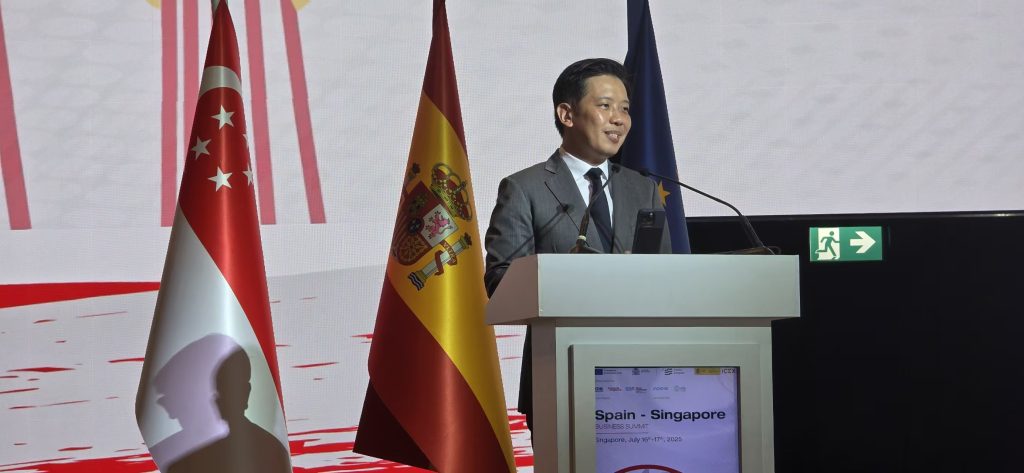
From Maritime Traditions to a Green Future
Since the entry into force of the EU–Singapore Free Trade Agreement in 2019, bilateral trade in services between Singapore and Spain has more than doubled, reaching US$2.5 billion in 2023. Goods trade rose 25% to US$3 billion. Singapore’s investments in Spain total US$4.5 billion, while Spanish investments in Singapore stand at US$1.5 billion.
Today, more than 500 Spanish companies are active in Singapore, with firms such as Acciona, Repsol, and Sener establishing regional headquarters here to expand into Southeast Asia. Conversely, Singapore companies—such as Surbana Jurong and agri-commodities giant Olam—have entered the Spanish market, leveraging Spain as a gateway to Europe, the Americas, and North Africa.
Mr Tan noted Singapore’s strong connectivity through 28 free trade agreements worldwide, including five direct weekly flights between Singapore and Barcelona. He also cited the Malaysia-Singapore Special Economic Zone (JS-SEZ) as a new platform offering investment facilitation.
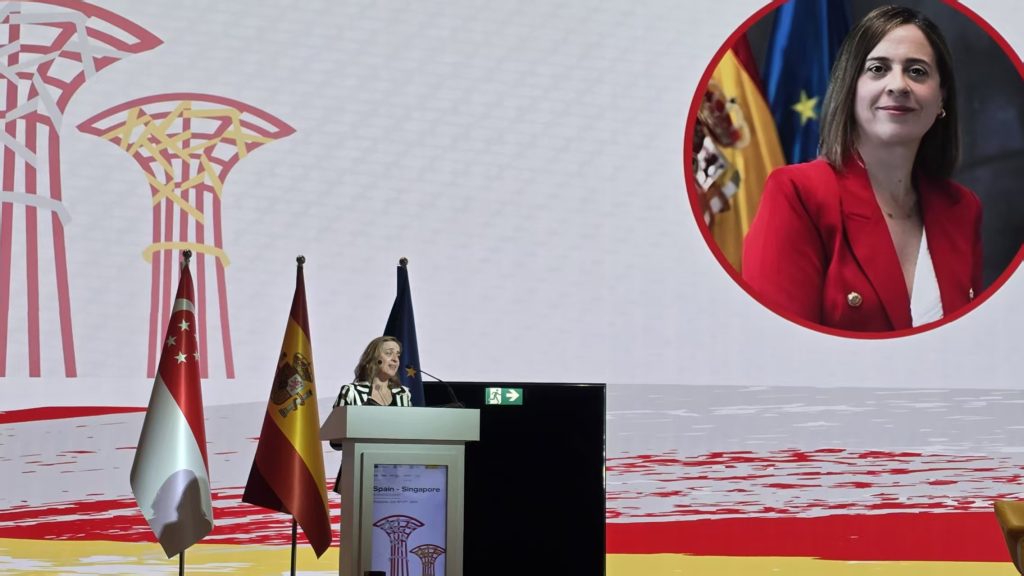
Spain’s commercial ties with Singapore date back to the 17th century. Spanish Deputy Minister for Trade of Spain, Ms. Amparo López, emphasized that the EU-Singapore FTA and Digital Partnership Agreement have significantly boosted bilateral economic relations. In 2024, bilateral trade exceeded €3 billion, with services accounting for nearly half—spanning engineering, digital consultancy, and tech transfer.
Ms. López is also the president of ICEX Trade & Investment, she expressed hopes for continued collaboration grounded in shared values of free trade, rule of law, and multilateralism, especially amid current global uncertainties.
Business Wisdom amid Cultural Differences
Beyond the ministerial speeches, the summit featured practical insights and cultural reflections from corporate leaders of both nations.
Enrique Naz, CCO Biofuels at Spanish Moeve Chemical, praised Singapore’s pro-business environment. “Transparent regulations, a common business language, and a multicultural society make Singapore an ideal place for foreign companies to root and thrive,” he said, commending local institutions such as SBF, Enterprise Singapore, and the EDB for their hands-on support.
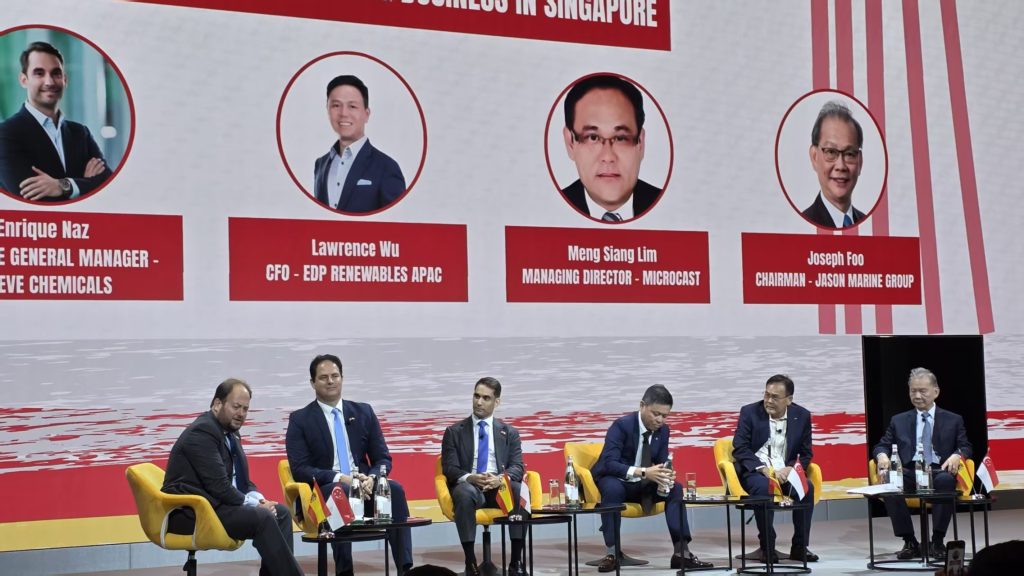
From the energy sector, Lawrence Wu, CFO of EDP Renewables APAC—the world’s fourth-largest renewable energy firm—shared that EDP has invested over US$2 billion in Singapore. The city-state now serves as EDP’s Asia-Pacific HQ and financial platform, complementing its global HQ in Spain to form a dual “East-West engine.”
He contrasted the two countries’ business rhythms: “Spain values work-life balance and flexibility, while Singapore emphasizes speed, structure, and legal certainty.” He added, “I love the summer holidays in Europe—it’s when my inbox finally clears.”
Globalization, the speakers noted, is not just about capital or technology but also deep cultural integration. Joseph Foo, CEO of Jason Marine, remarked, “Understanding and respecting local culture is essential to internationalization.” Despite language and regulatory hurdles, his company successfully launched a Spanish subsidiary during the pandemic, with strong support from the Spanish Embassy in Singapore.
“We shouldn’t compare cultures as better or worse, but focus on adapting and finding our rhythm of collaboration,” he said. “Even different cities within the same country operate differently. Only through trust and mutual respect can partnerships transcend cultural gaps.”
Juan Jose Corcia, COO SEA of Airbus Defence and Space highlighted, “Singaporeans speak with diplomacy, but that doesn’t mean they lack strong views. If you overlook the subtext, you might miss crucial signals.” He also noted Spanish adaptability: “Life changes, and so do projects. Singaporeans appreciate that we remain flexible within the rules—that’s part of our cultural strength.”
Lim Meng Siang, Managing Director of Singapore’s precision engineering firm Microcast, which has factories in China, Indonesia, and Spain, offered a unique perspective: “In our Spanish plant, female workers are masculine, and confidently operate heavy machinery—that’s an industrial force not to be underestimated.” He also observed how he’s adapted to locals, like dining at 9pm.
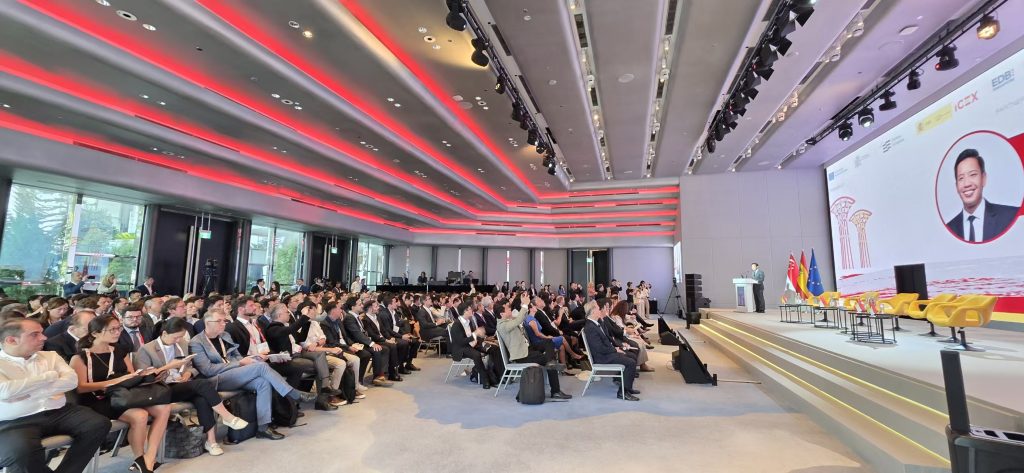
Rather than obstacles, cultural differences have created fresh opportunities for institutional understanding, operational alignment, and talent synergy. Today’s summit welcomed around 400 delegates from both governments and private sectors, engaging in discussions on bilateral investment, sustainability, advanced manufacturing, and cross-cultural dynamics.
The inaugural Spain–Singapore Business Summit 2025 is a premier bilateral forum co-hosted by the Singapore Business Federation (SBF) and the Economic and Commercial Office of the Embassy of Spain, in partnership with CEOE, Cámara de España, and ICEX Spain Trade and Investment.


